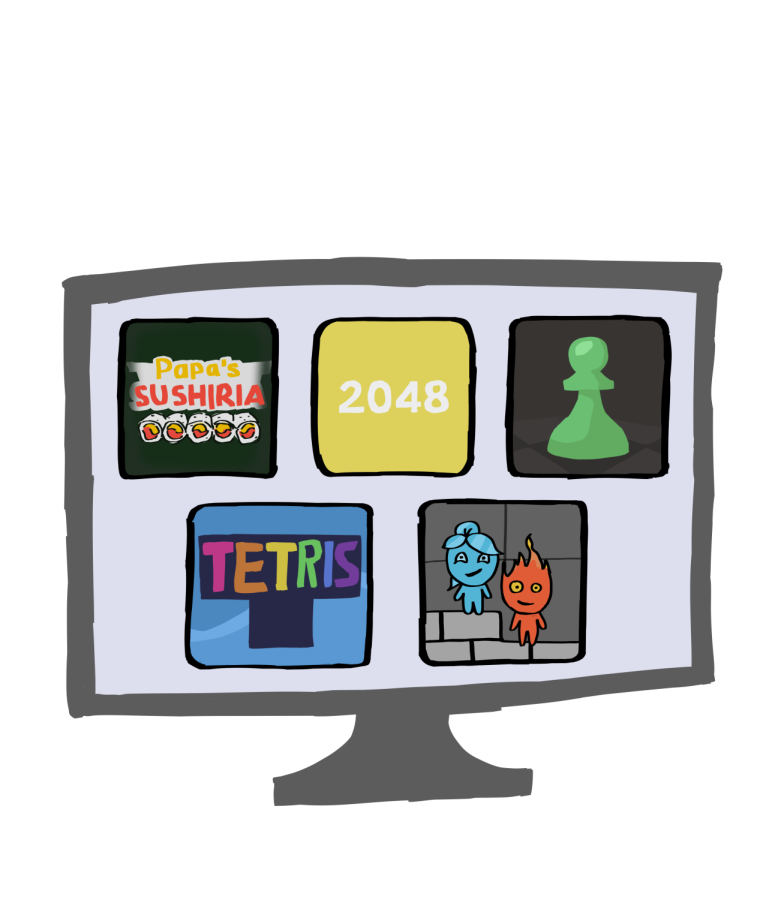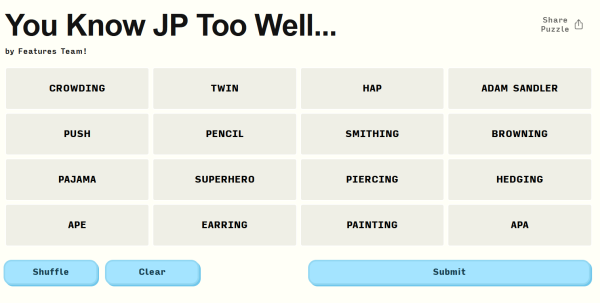JP Gaming
April 17, 2023
Since the very first year the district passed out individual computers, gaming has been a crucial part of school culture—along with the constant battle between games and teachers for students’ attention. There may not be many people within this school who remember the excitement of Animal Jam and ABCya or how we all mourned the untimely demise of coolmathgames.com when it was blocked on our computers. Meanwhile, games like Tetris have stayed at a constant level of popularity for quite some time.
Of course, not all students are gamers. There is still a considerable proportion of people who might have never even touched any of the games mentioned in this article. Nonetheless, every student has at least witnessed others going through the process. Whether as a player or an onlooker, the pure variety in the classroom is unmistakable: old favorites have resurfaced on other platforms with the Papa Louie games (Papa’s Sushiria especially, with the rise of bubble tea popularity). Students continue to discuss their daily routines of conquering the preposterous number of Wordle variants and agonize over the correct answer in the daily crossword puzzle. Minesweeper enthusiasts debate over whether to play their game in hard mode or click through easy mode to gain the fastest speed. Two people sitting across from each other in a classroom might suddenly release respective groans of defeat and fist bumps of victory after a game of chess. From the back of the classroom, students can try to guess the artwork of the Jigsaw puzzle someone else is working on.
Granted, we cannot ignore the obvious disruption that classroom gaming carries. Understandably, the adult world has been in a deadlock with the student world over the issue of gaming. Just as often as a new game rises to popularity, a website gets shut down in a digital round of Whack-a-Mole. Even trying to pull up a single game of 2048 now requires going down the long queue of Google page results. Just today, the day this entry is being written, Papa’s Sushiria was registered as blocked, which might be hinting at the end of another outlet.
The struggle isn’t just on the digital screen: teachers’ exasperation at the unsolvable gaming addiction has led to multiple amusing encounters. A computer science teacher, realizing the extent to which the students were playing chess rather than listening to the lectures, used a 3D printer to produce a real chess board for those students. Another teacher, while monitoring the Macbooks through Classroom Relay, caught a student playing Wordle and publicly interrogated that person to find out how many tries it took them to guess the word of the day.
In spite of all these inconveniences, some games are not without their educational merits, which even the adult world concedes to. History teachers who hope to improve students’ geography can recommend the daily Globle puzzle. Though most students are jesting when they try to defend playing 2048 in front of their math teachers on the grounds of it being “a game with numbers,” many math teachers themselves enjoy 2048.
And so, this eternal struggle continues.









































